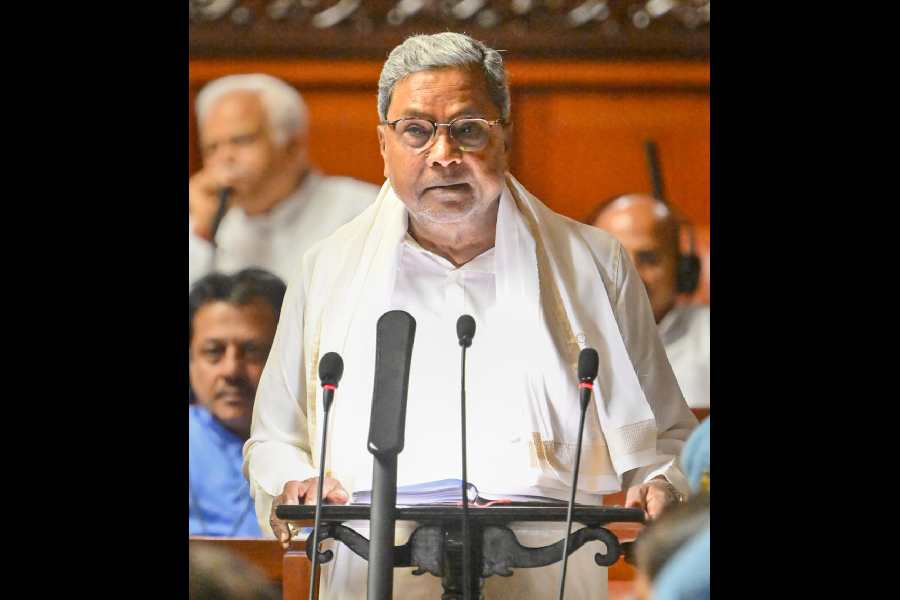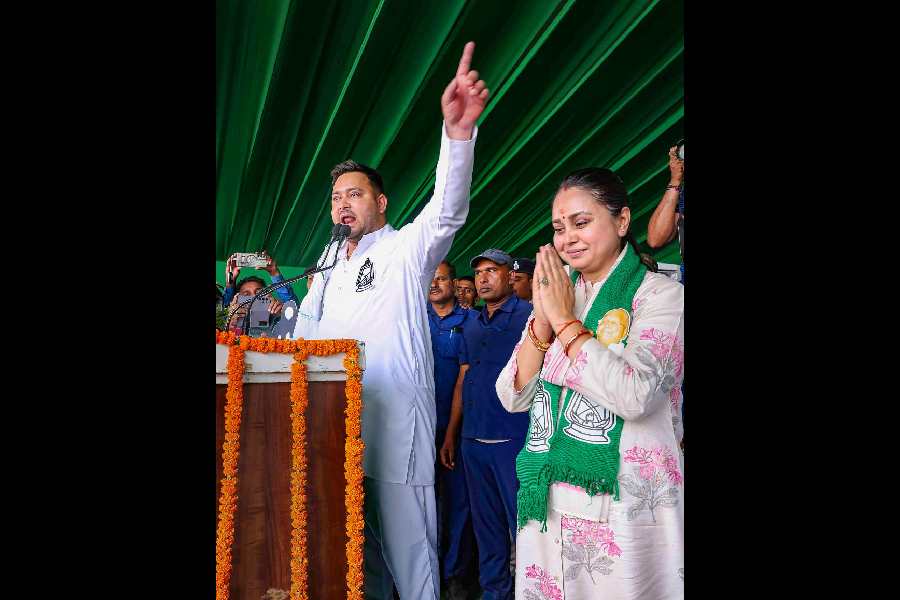Double century
In this season of elections and the Indian Premier League, the Rashtriya Janata Dal leader, Tejashwi Yadav, slammed a double century of political rallies, leaving his opponents far behind. At last count, he was batting at 210 not out and was gearing up for the 250 mark. Averaging six to seven rallies a day, the 34-year-old leader has achieved this tally while battling crippling back pain, which has him bound to a wheelchair. His ally and the Vikassheel Insaan Party chief, Mukesh Sahani, who has accompanied Tejashwi in most of the rallies, celebrated the occasion by cutting a cake with him while flying in a helicopter to address a rally. Mukesh pointed out that this would make many people jealous. In comparison, the deputy chief minister and president of the Bharatiya Janata Party in Bihar, Samrat Choudhary, has addressed around 110 public rallies and the CM, Nitish Kumar, some 55 meetings apart from conducting six roadshows for Janata Dal (United) candidates. The prime minister, Narendra Modi, who is paying special attention to Bihar has addressed 15 rallies in the state so far, followed by 10 by the Union home minister, Amit Shah, and six by the Union defence minister, Rajnath Singh. Leaders cutting across party lines pointed out that Tejashwi was using his youth and energy to the hilt, aspects in which many other state or Central leaders cannot match him.
Free to love
A true-blue socialist known for his progressive outlook, the Karnataka CM, Siddaramaiah, recently recalled how caste sentiments and traditions foiled his earnest attempt to marry a girl from another caste. He couldn’t have picked a better analogy to inaugurate an inter-caste matrimonial portal in his native Mysuru than his own experience with casteism.

Karnataka CM Siddaramaiah. File picture
While he wanted to marry his law college classmate who belonged to another community, neither the girl nor her parents wanted matters to proceed further owing to caste differences. At least now, he appealed, youngsters in love should have the freedom and the courage to marry whoever they want.
Undue stress
The PM flew to Patna to pay his condolences at the residence of the senior BJP leader, Sushil Kumar Modi, who died recently of cancer. He went there and spent some time reminiscing about the leader who was instrumental in catapulting the party to power in the state in alliance with Nitish Kumar and his JD(U). Modi had also been one of the prime movers against the RJD chief, Lalu Prasad, in the infamous fodder scam. Amit Shah and other senior leaders also visited Modi’s house to pay tributes and meet his family members. However, some state BJP leaders were annoyed with the Central leaders and blamed them for Modi’s demise. “Modi spent his life strengthening the BJP in Bihar and ushering it into power, but the way he was sidelined in state politics after the 2020 assembly elections left him broken. The stress and sadness made him ill and led to cancer. Otherwise, he would not have got the disease. He regularly practised yoga and exercised, was a frugal eater, always ate home-cooked food, and neither smoked or drank. The top party leaders should consider this and repent for what they did,” a Bihar BJP leader shared.
Veiled bias
The Delhi BJP has asked the chief electoral officer of the capital to ensure the proper verification of the identity of burqa-clad voters. In the 2019 polls, the party had asked the CEO to monitor mosques for hate speeches. No such concern has been shown for veiled women from other faiths — a common sight in North India — or, for that matter, rabble-rousers from other faiths.
Subaltern speaks
The scholar, Gayatri Chakravorty Spivak, has drawn flak for repeatedly interrupting a student who attempted to question her claims of being middle-class by publicly correcting him for wrongly pronouncing the name of the sociologist, WEB Du Bois. The student in question, Anshul Kumar, introduced himself as the founding professor of a centre for Brahmin studies. The MA Sociology student walked out of the lecture at the Jawaharlal Nehru University on Tuesday after being disallowed from completing the question he was posing to the 82-year-old academic best known for her 1988 essay, “Can the Subaltern Speak?”. The Dalit student then went on to put up a notice with an expletive directed towards Spivak, and the message: “If the subaltern can’t speak, he shall abuse!”










